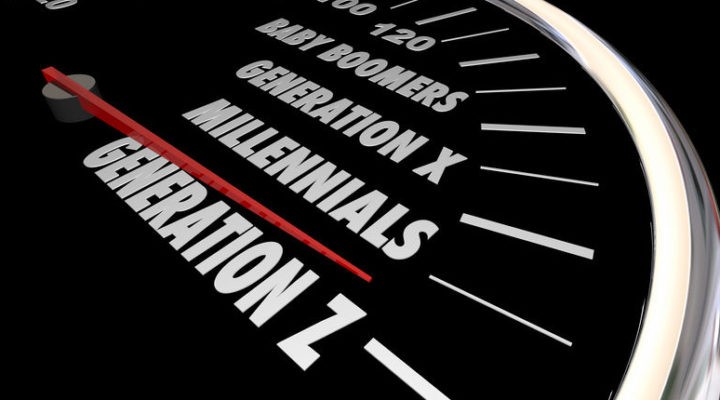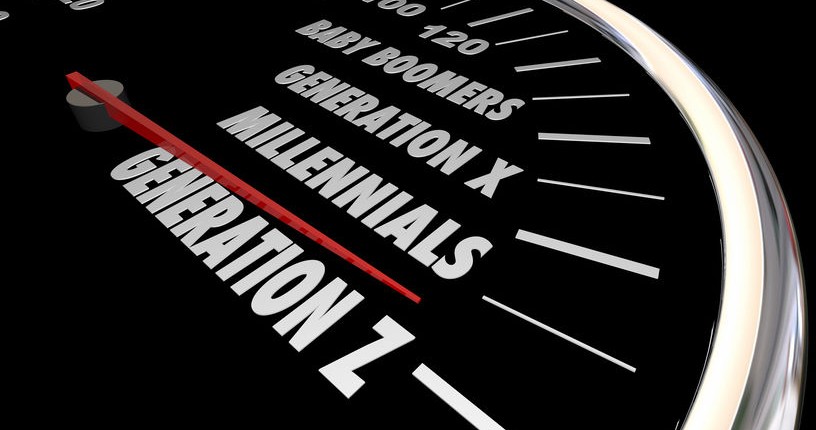Republicans unhappy with the outcome of the 2020 presidential election are likely in for continued disappointment as younger generations of religiously unaffiliated Americans become eligible to vote, political scientist Ryan Burge said.
This shift is demographically inevitable as members of the ethnically diverse Generation Z, the group born from the mid-1990s onward, increasingly reach voting age while the number of white evangelicals, the current Republican base, continues to shrink.
“The Republican Party is fighting a losing battle if its base continues to be white Christianity,” said Burge, an author, blogger and assistant professor of political science at Eastern Illinois University. His expertise includes Americans with no religious identity or belonging, also known as the “nones.”
More than 40% of Gen Z Americans identity as “nones.”
It’s already known that more than 40% of Gen Z Americans identity as “nones” and that they are more ethnically and racially diverse than the Millennial generation just ahead of them.
Those should be troubling signs to white evangelicals and Republicans, Burge said. “Not being white is a big piece of it. Every succeeding generation is less white than the previous generation.”
With their oldest members just now turning 23, only one in 10 eligible voters in the 2020 general election were Gen Z, the Pew Research Center said. But already they are seen trending away from conservative causes and candidates.
According to a January 2020 study by the Pew Research Center, “about a quarter of registered voters ages 18 to 23 (22%) approved of how Donald Trump is handling his job as president, while about three-quarters disapproved (77%). Millennial voters were only slightly more likely to approve of Trump (32%).”
“Generation Z represents the leading edge of the country’s changing racial and ethnic makeup.”
In May, Pew reported that “Generation Z represents the leading edge of the country’s changing racial and ethnic makeup” with only 52% of them being non-Hispanic whites. Of the remainder, a quarter are Hispanic, 14% are Black, 6% are Asian “and 5% are some other race or two or more races.”
Gen Z’s leftward bent confirms its overwhelming tendency to identify as “nones” which, regardless of age, is a growing group of Americans who shows significant liberal preferences, said Burge, whose new book, The Nones: Where They Came From, Who They Are, and Where They Are Going, is scheduled for release in March.
Within that category are atheists, agnostics and a group called “nothing in particular.”
“Atheists are the most liberal group in America today,” he noted. “Some 80% vote Democratic for president and it doesn’t matter who the candidate is.”
Agnostics “are not quite as liberal as atheists” but usually vote 75% Democratic nonetheless, Burge said.
Those who researchers call “nothing in particular” — because that’s the option they choose on surveys about religious belief — have been seen to fluctuate politically. “Those who identify as ‘nothing in particular’ right now are 20% of the population — about the same as white evangelicals and slightly smaller than Catholics of all races,” Burge said.
While 70% of them backed Barack Obama in 2008, only 57% did in 2012. Less than half of them, at 46%, supported Hillary Clinton against Donald Trump in 2016, he said.
But in 2020, 60% of the “nothing in particular” group showed up at the polls for Joe Biden. Burge added that the support of “nones” overall was important to the Democratic presidential candidate.
In a Nov. 20 blog post titled “The Nones May Be the Reason that Joe Biden is the President-Elect,” Burge argued that the voting patterns of atheists, agnostics and “nothing in particular” may have been especially important in states with very close tallies.
“I think it’s completely fair to say that these shifts generated a 2-percentage-point swing for Biden nationwide.”
“It’s a perilous exercise to determine how much these changes in voting behavior shifted voting totals because we don’t have a good sense of turnout for these groups just yet, but I think it’s completely fair to say that these shifts generated a 2-percentage-point swing for Biden nationwide,” Burge said in his blog.
The data should be a wake-up call to conservatives given that religiously unaffiliated Americans now outnumber evangelicals in the U.S. population, Burge said.
“Republicans have been riding the coattails of white Christianity and they have done very well with it, but that is going to end,” he said. “How do you reach out to ‘nones’ when your pitch is Christian nationalism and ‘in God we trust?’”


